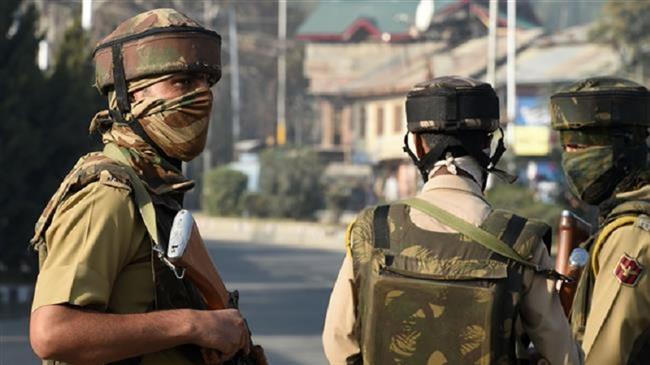Shotgun pellets cause ‘irreversible damage’ in Kashmir


A number of recent empirical studies say thousands of people in Indian-controlled Kashmir have fallen victim to pellet weapons used by security forces over the past few years, Press TV reports.
The studies conducted on Kashmiri victims of the weapon emphasize the irreversible nature of damage caused to their eyesight.
“Pellet injuries in the eye causes serious visual decline due to vitreous hemorrhage, cataract and retinal detachment,” states a study published in the Global Journal of Medical Research (USA).
The study, first since 2016 when mass-scale pellet injuries were caused in Kashmir, has been conducted by doctors from an eye hospital in the northwestern Indian city of Amritsar on pellet victims visiting from Kashmir for treatment.
Continuing the use of the indiscriminate guns has caused injuries blinding 1,314 eyes of 1,253 victims since 2016 alone. The so-called non-lethal weapon has also caused deaths since it was introduced in Kashmir during the public uprising of 2010.
Another study published in the Journal of Evolution of Medical and Dental Sciences has documented how chances of improvement of vision “remained poor despite development of advanced micro-surgical techniques.”
The use of pellet guns causing “dead eye epidemic” in Kashmir have caused an international outrage.
In January, Amnesty International India launched a signature campaign to ban the use of pellet weapons in Indian-controlled Kashmir, which is one of the world’s most heavily militarized areas. More than 500,000 Indian soldiers are deployed in Kashmir regularly to crack down on civilians. Clashes in the region have become more frequent since the killing of a popular fighter, Burhan Wani, in July 2016, which sparked widespread unrest.
Kashmir has been divided between India and Pakistan since their partition and the end of the British rule in 1947. Both countries claim the territory in its entirety, however. They have fought three wars over the disputed territory.








